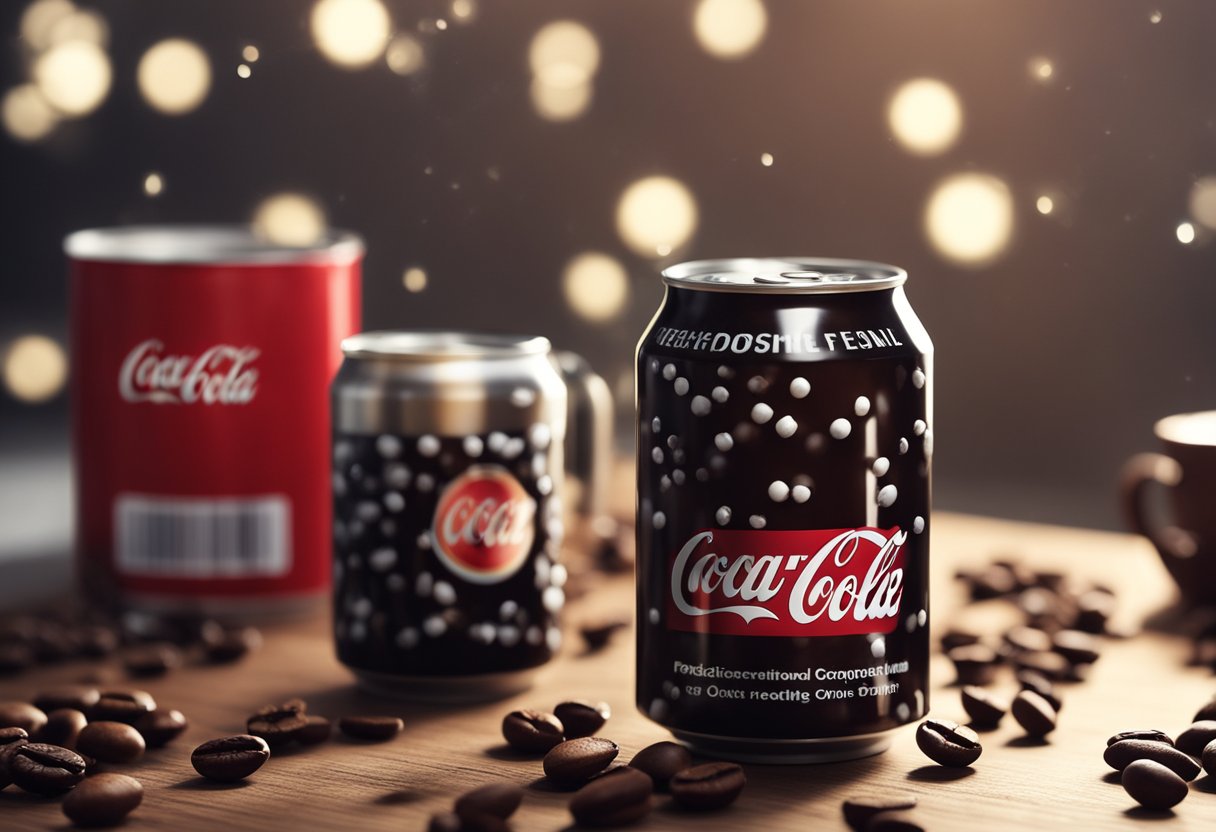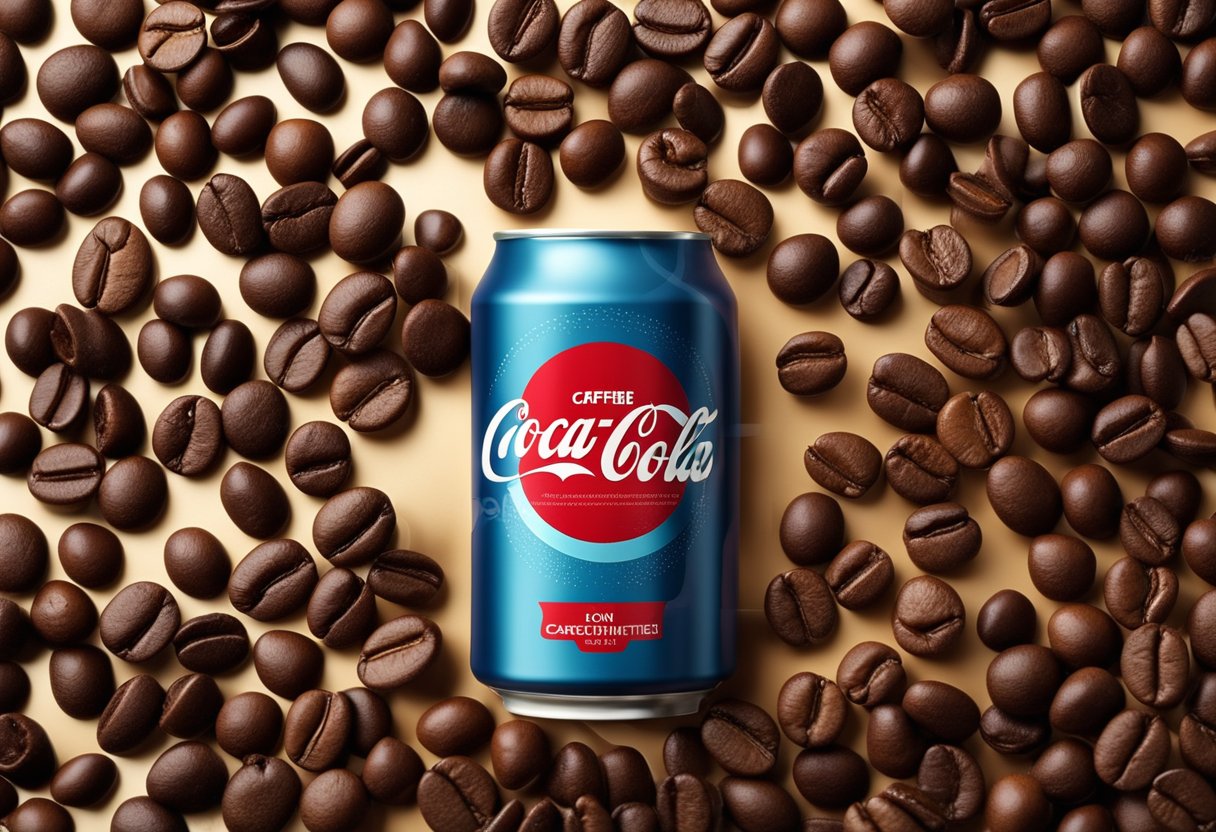How Much Caffeine in Coke: Your Quick Guide to Soda Content
Coca-Cola, commonly referred to as Coke, is one of the most popular soft drinks in the world, cherished for its unique taste and refreshing quality. But beyond its flavour, many consumers are interested in the caffeine content of Coke, especially those monitoring their caffeine intake for health or dietary reasons. A standard 355 ml can of Coca-Cola contains approximately 34 milligrams of caffeine, a stimulant that is known to increase alertness and provide a temporary boost in energy.

Comparatively, Diet Coke, which aims to offer the same great taste but with fewer calories, has a slightly higher caffeine content with about 42 milligrams per 355 ml can. People often debate about the effects of caffeine, some appreciating the mild stimulant for its focus-improving qualities, while others may need to avoid it due to sensitivity or medical advice. It’s important to understand how this level of caffeine fits into the context of an individual’s total daily consumption and health guidelines.
Knowing the caffeine content in beverages like Coke is crucial because it helps individuals make informed decisions about their dietary choices. This awareness allows for careful moderation, since excessive caffeine consumption can lead to unpleasant symptoms such as jitteriness, disrupted sleep patterns and, in extreme cases, more serious health issues. Therefore, whether one enjoys Coke for its taste or the energy lift it provides, being mindful of the caffeine levels is beneficial for maintaining a balanced diet.
Caffeine Content in Coke

Coca-Cola, known colloquially as Coke, often ranks among popular caffeinated soft drinks. The caffeine content in Coke provides a gentle stimulant effect that many consumers enjoy.
Caffeine Levels vs Other Beverages
Coca-Cola contains 34 milligrams of caffeine per 12-ounce can, which is considered moderate when compared to other caffeinated beverages. For context, a similar serving of green or black tea typically contains between 24 to 70 milligrams of caffeine, while a standard cup of coffee can contain 95 to 200 milligrams. Soft drinks like Diet Coke have a slightly higher caffeine content at 46 milligrams per can. Unlike these caffeinated options, caffeine-free versions of Coca-Cola are available for those who prefer to avoid the substance altogether.
| Beverage | Caffeine Content per Serving |
|---|---|
| Coca-Cola (12 oz) | 34 mg |
| Diet Coke (12 oz) | 46 mg |
| Green Tea (8 oz) | 24-45 mg |
| Black Tea (8 oz) | 14-70 mg |
| Coffee (8 oz) | 95-200 mg |
| Caffeine-Free Coke (12 oz) | 0 mg |
Understanding the Label
When examining a soda can’s label, the caffeine content is often listed in milligrams per serving size. The Food and Drug Administration (FDA) recommends that adults limit their caffeine intake to no more than 400 milligrams per day. This information is crucial for consumers to make informed choices about their caffeine consumption. For individuals who are sensitive to caffeine or wish to reduce their intake, labels can help identify caffeine-free alternatives. It’s important to note the serving size, however, as some bottles or cans may contain multiple servings, thus increasing total caffeine consumption.
With an awareness of these details, someone can appreciate a can of Coke while being mindful of their total daily intake of caffeine from all sources, including energy drinks, tea leaves, and coffee beans.
Health Implications of Caffeine in Coke
The caffeine content in Coca-Cola can have various health implications for both adults and children, particularly for those who are sensitive to this stimulant. Understanding these effects is crucial for making informed decisions about consumption.
Effects on Adults and Children
Adults: Caffeine, acting as a stimulant for the central nervous system, can increase alertness and reduce feelings of tiredness. However, when consumed in high amounts, caffeine can lead to anxiety, insomnia, and headaches. Adults generally consider moderate caffeinated beverage consumption to be safe; however, excessive caffeine intake, especially in conjunction with sugar found in Coke, could contribute to weight gain and other health concerns.
Children: They are more sensitive to caffeine’s effects. Caffeine can affect their developing central nervous system and might lead to behavioural changes. For example, it could make it harder for them to sleep at night. Therefore, it is recommended that children have a much lower intake of caffeinated products, if any.
Considerations for Sensitive Groups
Pregnant Women: Caffeine travels across the placenta and might affect a developing foetus. Pregnant women are advised to limit their caffeine intake to moderate levels or opt for decaffeinated or caffeine-free beverages. Natural sources of caffeine such as green tea or black tea could be safer alternatives but should still be consumed in moderation.
Breastfeeding: Caffeine can also be transmitted through breast milk. Therefore, breastfeeding women need to monitor their intake to avoid potentially impacting their infant.
Individuals on Medication: Some might have heightened sensitivity to caffeine due to interactions with medication, and they should discuss their caffeine consumption with a healthcare professional to avoid adverse effects.
Remember, moderation is key, and those worried about their health should consult a health professional when concerned about their caffeine intake.
Frequently Asked Questions
This section addresses common inquiries regarding the caffeine content in various Coca-Cola products and compares it to other beverages.
What is the caffeine content of Coke Zero?
Coke Zero, much like the standard Coca-Cola, contains caffeine. However, it usually has a slightly different amount based on the market in which it’s sold. For example, in the UK, a typical 330ml can of Coke Zero contains about 32 mg of caffeine.
Can you tell me about the caffeine levels in a 330ml can of Coke?
A 330ml can of Coca-Cola, which is a standard size in the UK, contains approximately 35 mg of caffeine. This caffeine content in Coca-Cola is considered moderate when compared to other caffeinated beverages like coffee.
How does the caffeine in Diet Coke compare to a regular Coke?
Diet Coke generally has a higher caffeine content than regular Coke. For instance, a 330ml can of Diet Coke contains around 42 mg of caffeine, whereas regular Coke has around 35 mg for the same volume.
Is there a difference in caffeine content between Coke and Pepsi?
Yes, there is a slight difference in caffeine content. Pepsi typically has a bit more caffeine than Coca-Cola. For example, a 330ml can of Pepsi contains about 38 mg of caffeine, while the same sized can of Coca-Cola has about 35 mg of caffeine.
What’s the amount of caffeine found in 500ml of Coke?
A 500ml bottle of Coca-Cola contains approximately 53 mg of caffeine. This amount is derived by scaling up the typical caffeine content found in a 330ml can.
Could you give an indication of whether 200 mg of caffeine is considered a high amount?
An intake of 200 mg of caffeine is considered a moderate amount for adults. However, it is close to the daily upper limit recommended by many health authorities, which is 400 mg of caffeine. More information about caffeine and beverages can be found, including guidelines on safe consumption levels.
